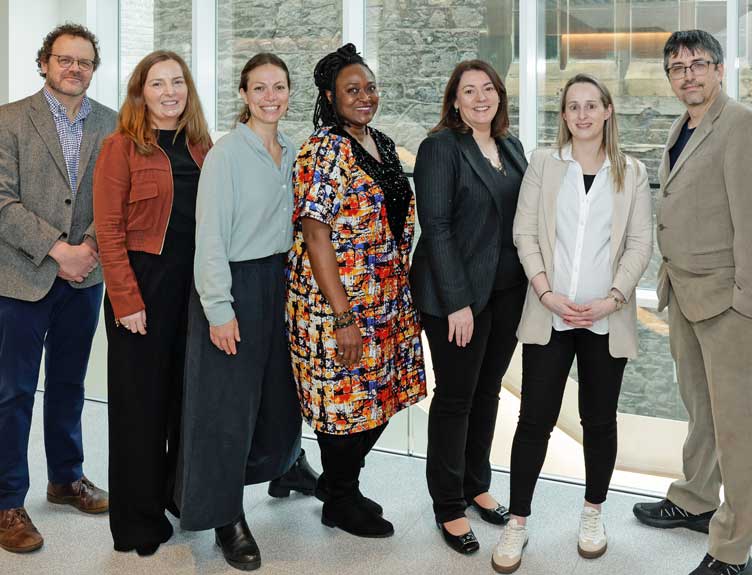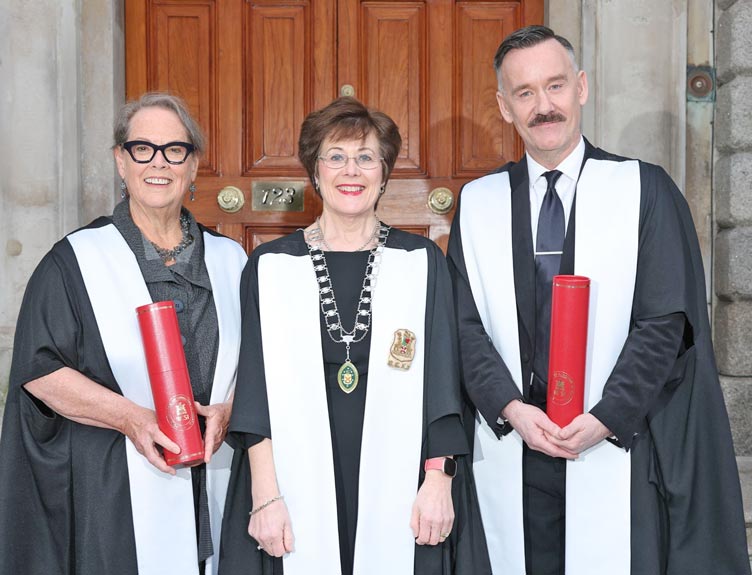RCSI celebrates AsIAm Autism Friendly HEI Status and adopts ALTITUDE Charter

RCSI University of Medicine and Health Sciences has been officially announced as an Autism Friendly Higher Education Institution, following an accreditation process with AsIAm, Ireland’s national autism charity.
RCSI is committed to supporting autistic students so that everyone has the chance to achieve their full potential. Higher education institutions which receive the AsIAm Autism Friendly HEI award are understanding of the needs of autistic students, open to making adaptations to being more accessible, have a positive celebratory culture towards autism, and invite a whole campus approach to being autism friendly.
The RCSI application was led by the VisABILITY Forum, which supports the rights of disabled students and staff. The application involved input from colleagues across the university, as well as engagement with autistic students and staff. AsIAm conducted a sensory audit of the RCSI Campus, a survey was sent to the RCSI student and staff body, and a three-year action plan was created by the Steering Committee.
Adam Harris CEO and Founder of AsIAm commented: “AsIAm, Ireland's Autism Charity is delighted to recognise RCSI with our Autism-Friendly HEI Award. Our accreditation process is rigorous and requires a whole of campus approach to breaking down barriers for both autistic students and employees. Autistic people often face invisible barriers in the worlds of education and employment which prevent our community enjoying the same chance to contribute and thrive, representing a major loss of talent and perspective to academic institutions and our society. Demographically we are seeing more autistic people age out of school, or access adult diagnosis, and it will be critical for HEIs to be fully accessible to our community as places of study and work over the coming decade.
RCSI's new status will not only open doors of opportunity to our community as students and employees but lead to greater understanding and improved accessibility for autistic people accessing healthcare – a key priority for our community which makes RCSI's leadership in this area of strategic importance and significance.”
Professor Cathal Kelly, Vice Chancellor, RCSI, said: “RCSI University of Medicine and Health Sciences is honoured to be recognised by AsIAm as an Autism Friendly HEI. This is the result of the dedication and commitment of our VisABILITY Forum, a staff and student group which supports the rights of disabled students and staff. We are grateful to AsIAm for their support and guidance throughout the application process, and we look forward to continuing to develop an inclusive culture which supports our autistic students, staff and patients.”
A commitment to universal design
As part of this launch event, RCSI University of Medicine and Health Sciences also publicly declared its support for and adoption of ALTITUDE – the National Charter for Universal Design (UD) in Tertiary Education – and joins the national call to action for institutions and agencies to work towards a more universally designed tertiary education system. We were delighted to be joined by Maureen Haran, UDL Lecturer from ATU, the lead institutional partner on this project, who spoke about the Charter and its significance for the higher education sector.
Professor Kelly added that “RCSI strongly believes that ‘inclusion is everyone’s business’, and that all staff play a role in creating an environment in which the diversity of learners in our community can thrive. By adopting the ALTITUDE Charter, we have committed to work collaboratively across the institution to embed a UD approach more firmly in our practices and processes in the years ahead, building on the good work already achieved in this area”.
Watch a video about ALTITUDE - the National Charter for Universal Design in Tertiary Education
Liz Hughes, Head of RCSI’s Equality, Diversity and Inclusion Unit commented: “Both the AsIAm Autism Friendly HEI Award and the ALTITUDE Charter further RCSI’s ambition to embed equality, diversity and inclusion (EDI) across everything we do. This ensures we can all work and learn in an environment defined by dignity and respect.”



